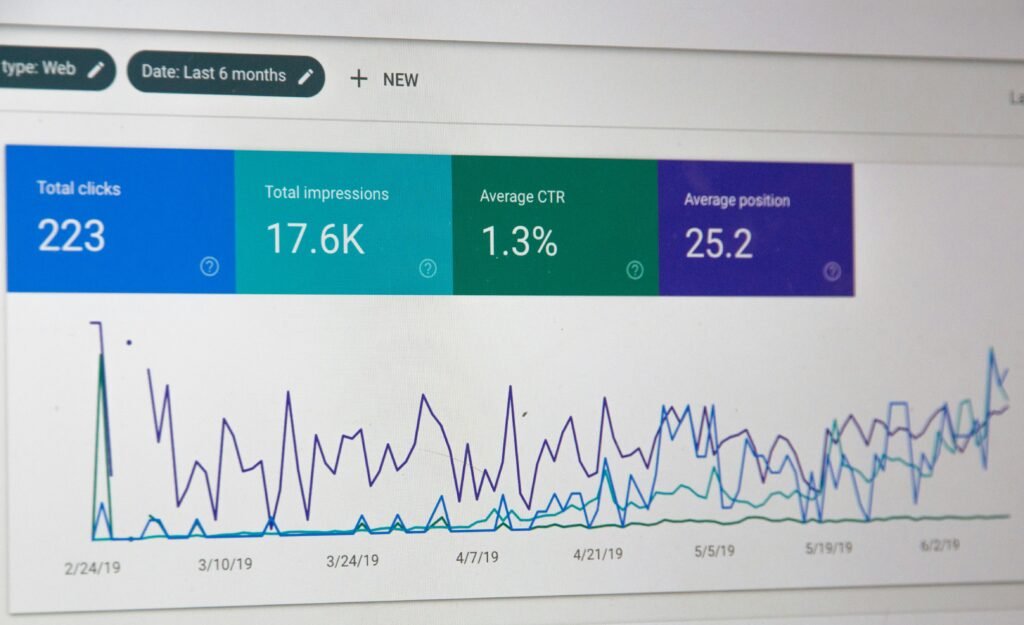
Introduction to AI App Builders
In recent years, the rise of artificial intelligence (AI) has significantly transformed various industries, and app development is no exception. AI app builders are innovative tools that leverage advanced algorithms and machine learning techniques to automate the process of creating applications. This technology enables users, regardless of their coding expertise, to develop fully functional apps quickly and efficiently. By streamlining the design and development phases, AI app builders address the growing demand for mobile and web applications in an increasingly digital world.
The functionality of AI app builders typically involves intuitive user interfaces where users can select templates, customize features, and define the app’s purpose without needing extensive technical knowledge. These platforms often incorporate natural language processing and computer vision to facilitate seamless communication between users and the app builder. As a result, small businesses and entrepreneurs can bring their ideas to life, while larger enterprises can expedite their app development processes. This democratization of app creation empowers a wider audience and fosters innovation across various sectors.
Moreover, the importance of AI app builders continues to grow as businesses seek to adapt to rapidly changing market dynamics. With the capacity to analyze user preferences and behaviors, these tools enable developers to create personalized experiences that align with customer needs and expectations. Furthermore, as industries strive for efficiency and cost-effectiveness, AI app builders emerge as strategic solutions that minimize manual labor, decrease development times, and reduce expenses associated with hiring specialized talent.
The evolution of AI app builders marks a significant shift in the tech ecosystem, paving the way for more individuals to participate in app development. By simplifying the process and enhancing overall productivity, AI app builders play a crucial role in shaping the future of application development, ultimately fostering an environment ripe for innovation and growth.
The Advantages of AI App Builders
AI app builders are swiftly gaining traction, owing to their inherent advantages that significantly enhance the application development landscape. One of the most notable benefits is their cost-effectiveness. Traditionally, developing an application requires substantial financial investment in hiring specialized developers and designers. However, with AI app builders, businesses can streamline the process, reducing labor costs by enabling a more automated, user-friendly approach to app creation. This is particularly beneficial for startups and small enterprises that may have limited budgets.
Another considerable advantage is the speed of development. AI app builders leverage sophisticated algorithms and machine learning capabilities to expedite the design and deployment processes. As a result, applications can be launched in a fraction of the time compared to conventional methods. For instance, organizations utilizing AI tools report decreased development cycles, allowing them to respond more rapidly to market demands and customer feedback.
Accessibility for non-technical users is yet another significant benefit. AI app builders provide intuitive interfaces that allow individuals without coding experience to create applications. This democratizes app development, empowering entrepreneurs and creative minds to bring innovative ideas to fruition without the barrier of technical expertise. Platforms like Adalo and Appgyver exemplify this trend, highlighting how user-friendly designs can foster creativity and innovation across a diverse user base.
Furthermore, AI app builders have the potential to enhance creativity by providing features such as automated design suggestions and analytics-driven insights. By leveraging data, these platforms can suggest design tweaks and functionality enhancements that align with user preferences and behavior, ultimately leading to more engaging applications. This integration of AI not only augments the creativity of developers but also expands the scope of what is achievable in app development.
The Disadvantages of AI App Builders
While AI app builders present numerous advantages, they also come with notable disadvantages that merit careful consideration. One primary concern is the potential limitations in customization. Although these tools often provide pre-built templates and features, they can restrict developers who seek to implement more unique or complex functionalities tailored to specific user needs. This can result in applications that lack distinctiveness, potentially leading to a saturated market of similar offerings.
Another drawback is the dependency on AI technology itself. Relying heavily on automated processes can hinder a developer’s ability to fully understand and manipulate the underlying code. This may create barriers for developers when updating or debugging applications, as they could become less familiar with the intricacies of the technology they are using. Furthermore, the reliance on AI tools for development may also lead to reduced learning opportunities for novice developers, who would benefit from hands-on experience with traditional coding.
Data security is another significant concern associated with AI app builders. As these platforms process a considerable amount of sensitive user information, any vulnerabilities within the AI infrastructure can pose considerable risks. Cyberattacks or data breaches can compromise sensitive data, leading to potential legal and financial repercussions for businesses. Consequently, organizations must ensure that they adopt robust security measures while using AI tools.
Lastly, the rise of AI app builders could impact employment opportunities for traditional developers. As companies increasingly turn to AI for quicker and cost-effective solutions, the demand for skilled developers may diminish, ultimately affecting job stability in the industry. This shift may lead to a future where creativity and human insight in technology development are undervalued. Thus, while AI app builders offer numerous efficiencies, it is vital to weigh these disadvantages against their advantages to gain a comprehensive view of their potential impact.
The Role of AI in App Development
Artificial Intelligence (AI) has become an integral part of app development, transforming traditional practices and enhancing the overall functionality of applications. By incorporating machine learning (ML), natural language processing (NLP), and various other AI technologies, developers can create more efficient, user-friendly applications that cater to consumer needs.
Machine learning algorithms are crucial as they enable applications to learn from user interactions and improve their performance over time. This adaptability allows apps to offer personalized experiences, making them more engaging for users. For example, streaming services leverage machine learning to analyze viewing habits and suggest content that aligns with individual preferences. This tailored approach not only boosts user satisfaction but also increases retention rates, which is essential for app success.
Natural language processing is another significant AI technology that enhances app development. NLP enables applications to understand and process human language, facilitating better communication between users and the app. Voice-activated assistants and chatbots, for instance, use NLP to interpret queries and provide accurate responses. This capability not only streamlines user interactions but also allows businesses to offer 24/7 support without the need for extensive human resources.
Additionally, AI facilitates predictive analytics, providing developers with data-driven insights into user behaviors and trends. This predictive capability helps in anticipating user needs and desires, allowing developers to create features that align with evolving market demands. By integrating AI tools into the app development lifecycle, businesses can enhance the quality and efficiency of their products, leading to better user experiences and increased competitive advantage.
In essence, AI’s role in app development is multifaceted, augmenting traditional practices and enabling the creation of smarter, more responsive applications. By embracing these technologies, developers have the opportunity to redefine how users engage with apps, paving the way for innovative solutions in the digital landscape.
Market Trends and Future Predictions
The landscape of AI app builders is experiencing significant transformation, influenced by ongoing advancements in artificial intelligence and machine learning technologies. As businesses seek to streamline processes and improve efficiency, the demand for AI-driven solutions has escalated. This trend reflects a broader movement where industries are increasingly adopting automation tools that facilitate rapid application development. Furthermore, sectors such as healthcare, finance, and retail are particularly noteworthy for embracing AI app builders, leveraging these tools to create more responsive and personalized user experiences.
Current market trends indicate that AI app builders are becoming more accessible to organizations of all sizes, prompting an influx of smaller enterprises into the development space. This democratization of app development allows non-technical users to create applications, significantly reducing the barrier to entry. As a result, companies across various sectors can innovate and respond to customer needs at an unprecedented pace. Industry forecasts suggest a substantial growth trajectory for AI app builders, with estimates projecting a compound annual growth rate (CAGR) of over 30% within the next five years. This boom in interest signals an increasing recognition of the role that AI technologies play in enhancing business operations.
<plooking adheres=”” advanced=”” advancements=”” ahead,=”” ai=”” also=”” analytics.=”” and=”” anticipate=”” app=”” applications=”” are=”” as=”” best=”” between=”” builders=”” but=”” can=”” compliance=”” concerns=”” data=”” elements=”” emphasis=”” enable=”” ensuring=”” evolve=”” functionality=”” future=”” grow,=”” improve=”” incorporate=”” increased=”” interactions=”” language=”” likely=”” more=”” moreover,=”” natural=”” not=”” on=”” only=”” p=”” personalized=”” place=”” practices.
In conclusion, the future of AI app builders appears promising, with notable trends indicating widespread adoption and significant growth potential. As various industries adapt to this transformative technology, the implications for app development are profound, paving the way for a new era of innovation. Potential growth areas are abundant, and as AI continues to advance, its integration into app-building processes is expected to reshape the way applications are conceived and developed in the years to come.
Case Studies: Successful Implementations
As businesses increasingly turn to AI app builders to create innovative solutions, numerous case studies illustrate the diverse applications and prominent successes across various sectors. One compelling example is a healthcare provider that utilized an AI app builder to streamline patient management and appointment scheduling. The organization faced the challenge of inefficient manual processes that resulted in increased wait times and patient dissatisfaction. By integrating an AI-driven solution, the provider not only automated administrative tasks but also improved communication and engagement with patients. The outcome was impressive: a reduction in appointment cancellations by 30% and an increase in overall patient satisfaction scores.
Another notable implementation can be observed in the retail sector. A major e-commerce platform adopted AI app builders to enhance their customer experience through personalized shopping recommendations. Initially, the company struggled with high cart abandonment rates and low conversion rates. The integration of an AI-driven app allowed for real-time data analysis and the creation of tailored product suggestions based on individual user behavior. The result was significant; the platform saw a 20% increase in conversion rates within three months of implementing the app. This case highlights the potential of AI applications to drive revenue growth while addressing consumer challenges effectively.
In the education sector, an AI app builder was deployed by a prominent university to offer personalized learning experiences to students. The institution encountered difficulty in catering to diverse learning styles and paces among its student body. By leveraging AI technology, the university developed an adaptive learning app that dynamically adjusted content based on student performance metrics. This implementation not only enhanced student engagement but also led to a 15% increase in course completion rates. These case studies underscore the transformative power of AI app builders in driving efficiency, improving customer experiences, and facilitating innovation across a multitude of sectors.
Challenges to Overcome for Widespread Adoption
The adoption of AI app builders presents a variety of challenges that must be addressed to ensure their widespread implementation across industries. One of the most significant obstacles is the integration of these advanced tools with existing systems. Many businesses rely on specialized software or legacy systems that may not readily communicate with new AI-driven applications. This incompatibility can result in increased costs and extended timelines for deployment, as organizations must invest in bridging technology that allows for seamless interoperability.
Another critical factor to consider is user training. While AI app builders are designed to simplify the application development process, the skill level required to understand and effectively utilize these tools can vary significantly among users. Employees need proper training to maximize the benefits and functionality of AI app builders, which may necessitate additional resources for businesses to provide adequate education and support. A focused investment in training programs can help ease the transition for employees, equipping them with the necessary skills to harness the technology successfully.
Furthermore, regulatory compliance presents another layer of complexity for organizations adopting AI app-building tools. As AI technologies evolve, so too do the regulations governing their use, which can vary by region and industry. Companies must navigate diverse legal landscapes while ensuring that their use of AI complies with established guidelines, particularly concerning data privacy and security. To address these challenges, organizations can develop a compliance framework that not only aligns with current regulatory requirements but is also adaptable to future changes in legislation.
To mitigate these challenges, businesses can consider collaborating with technology partners who specialize in integration and compliance solutions, as well as investing in ongoing training and development for their teams. By addressing these obstacles proactively, organizations can enhance the potential for successful and widespread adoption of AI app builders.
Ethical Considerations in AI Development
The rapid advancements in artificial intelligence (AI) technologies have initiated vital discussions regarding the ethical implications of utilizing AI in app development. One of the primary concerns revolves around data privacy. As AI applications often operate on vast datasets that may include sensitive user information, developers must ensure that they prioritize user confidentiality. Implementing robust data protection measures is crucial to safeguarding personal information, adhering to regulations such as the General Data Protection Regulation (GDPR), and maintaining user trust.
Another important aspect to consider is the transparency of AI systems. Users, as well as stakeholders, need to understand how these applications function and make decisions. This can be achieved by adopting clear communication strategies, which articulate the methodologies behind AI algorithms. Transparency can help mitigate misunderstandings and foster accountability, as it encourages developers to be responsible for their technologies’ impact on end-users and the broader society.
Accountability within AI development is of paramount importance, especially when it comes to the potential biases that may emerge from AI algorithms. Bias can stem from various sources, including the dataset used for training, which may inadvertently reflect societal prejudices. It is the responsibility of app developers to recognize, address, and mitigate these biases to ensure that AI applications are fair and equitable. This includes the establishment of ethical standards and guidelines that can serve as a framework for app developers to follow, promoting social responsibility in technology.
By focusing on responsible AI practices, app developers can foster an environment where ethical considerations take precedence. Engaging in ongoing discussions about the implications of AI technologies will not only strengthen the integrity of the industry but also assure users that their well-being is a priority in the design and implementation of AI applications.
Conclusion: Balancing Innovation with Caution
As we conclude our discussion on the future of AI app builders, it becomes evident that while this emerging technology presents substantial opportunities, it is not without its challenges. The advancements in AI app development are reshaping how applications are built, enabling developers to create more efficient, complex, and user-friendly solutions. These innovations enhance productivity, reduce development costs, and facilitate rapid prototyping, allowing businesses to adapt to evolving market demands swiftly.
However, alongside the promising advantages, there are significant concerns that must be addressed. The integration of AI into app development raises questions about security, ethical considerations, and potential job displacement within the software development industry. The potential for bias in AI algorithms poses risks in delivering fair and equitable user experiences. Moreover, businesses must remain vigilant about data privacy, ensuring compliance with regulations as they leverage AI tools.
To maximize the benefits of AI app builders, organizations must adopt a strategic approach that prioritizes responsible usage. This includes thorough testing of AI algorithms to mitigate bias, investing in staff training to understand AI capabilities and limitations, and maintaining transparency in how AI features influence user interaction. By fostering a culture of innovation tempered with caution, organizations can achieve a responsible integration of AI in app development.
In summary, the future of AI app builders is one that holds immense potential for innovation, yet demands a careful balance between embracing these advancements and addressing the associated risks. Through strategic planning and a commitment to ethical practices, businesses can harness the power of AI technology while ensuring that development practices remain responsible and beneficial for all stakeholders involved.




